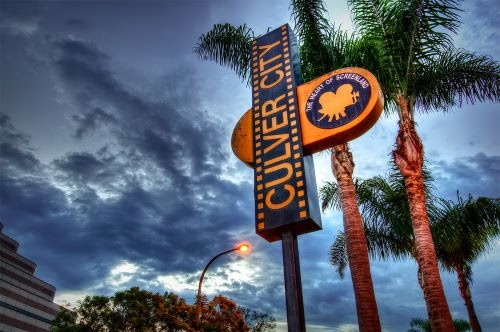As Donald Trump rapidly pushes America toward a Turkish or Hungarian style pseudo-democracy, Culver City just took the first step in the opposite direction. On Oct. 25, its city council approved a plan to give its residents a meaningful role in reshaping the city’s budget process via a randomly-chosen Athenian-style civic assembly.
While the body would only be advisory, there’s good reason to believe its advice will be heeded. There have been almost a thousand such bodies worldwide in the past 20 years, the vast majority of them advisory, and their recommendations have routinely been taken seriously, as explained in a presentation by Michelle Dennis, a retired UCLA public policy lecturer, who also served 20 years as Santa Monica’s director of finance.
Dennis also volunteers with Public Democracy LA, a coalition whose mission is “To catalyze an officially-sponsored civic assembly for Angelenos on a topic of broad public concern by 2026.”
Culver City faces a significant structural deficit over the next three years, and has planned a budget priorities survey along with two question-and-answer budget information sessions, in addition to residents’ regular opportunities to speak one to three minutes at council meetings. “These are top-down opportunities created for the community,” Dennis said. “A civic assembly provides a way for the community to say how they want to participate in the budget process. These can be bottom-up opportunities created by the community.”
Dennis went on to explain the process in detail. At its heart is the selection of a random group of citizens, demographically balanced to reflect the whole population, who are then brought together to be informed by experts on the issue at hand, but who then take the initiative in small group dialogues to come up with their own ideas about what is to be done.
Dennis referred to this as having experts “on tap, not on top.” Similarly, there are facilitators to ensure that everyone has an equal opportunity to be heard, but not to predetermine the direction discussions take, other than to assist in helping them be productive.
Councilman Bubba Fish brought the proposal to the council following his participation in a mock assembly held in Culver City in June, on the same weekend Trump had national guard troops confronting thousands of demonstrators in downtown LA.
The thoughtful deliberation in that assembly, devoted to responses to the LA wildfires, was a striking contrast to the paramilitary confrontation Trump was simultaneously forcing on the larger community of Los Angeles, a sharp contrast reflected in comments by one community member who spoke strongly in favor of the proposal.
“We’re in a time when our democracy and democracies around the world are being attacked in a horrible manner,” said Disa Lindgren. “We do have massive challenges as a species being able to work with one another. It’s something that’s also been in evidence in our community, this really, really … stark polarization. So I think this is an excellent idea,” she said. “I do think that using the budget as the subject for the civic assembly makes a lot of sense because it’s something that concerns everyone whether they have been civically engaged.”
Although civic assemblies have been widely used around the world the last two decades, they’ve been scarce in America, so only two organizations exist that have experience in facilitating them. That, along with cost and timeline considerations, led Dennis to advise the selection of “Healthy Democracy,” the only American organization that’s facilitated more than one assembly.
The council voted 3-2 to proceed with the civic assembly, with a competitive price quote. Results may be considered as soon as the next city council meeting on Nov. 10.



